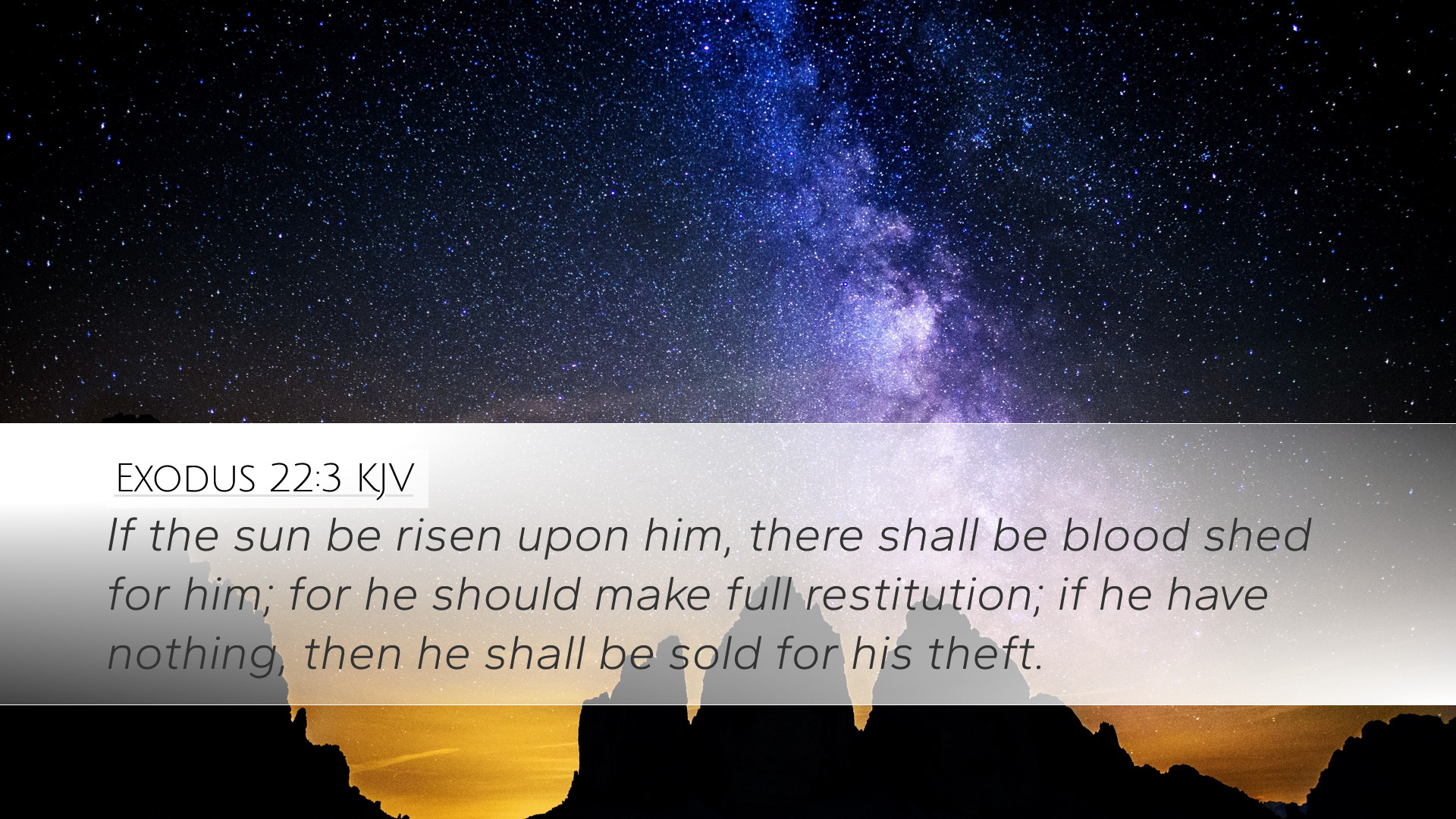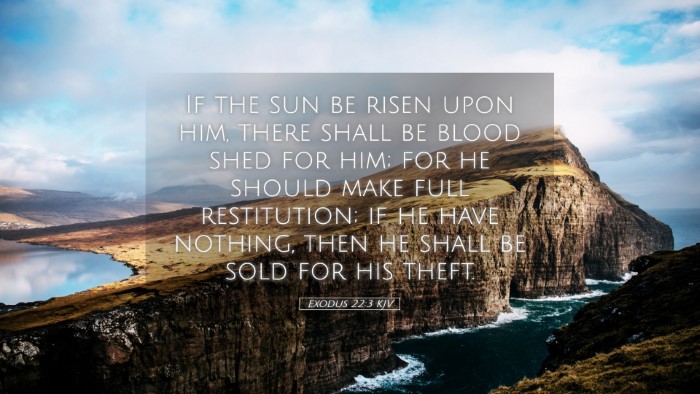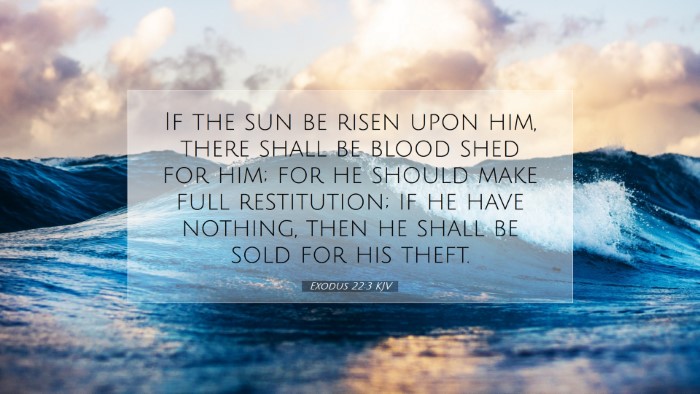Commentary on Exodus 22:3
Verse Reference: Exodus 22:3 - "If the sun has risen on him, there shall be bloodguilt for him, for he should have made full restitution; if he has nothing, then he shall be sold for his theft."
Contextual Overview
This verse is part of a broader section in the book of Exodus that deals with civil and moral laws given to the Israelites. It emphasizes justice and the restoration of property while highlighting the moral responsibility of individuals in society. Understanding this verse requires a grasp of the ancient Near Eastern context as well as Hebrew legal customs.
Thematic Insights
- Restitution and Justice: The verse deals principally with the theme of restitution. Matthew Henry notes that the law emphasizes the importance of making amends for one’s wrongdoings, demonstrating God’s concern for justice and moral order within society.
- Moral Responsibility: Albert Barnes highlights that the individual who steals has a moral obligation to restore what he has taken. The passage underscores that wrong actions must be accountable to the community and that justice prevails through restitution.
- Consequences of Theft: Adam Clarke points out the seriousness with which theft is regarded in biblical law. If the thief is caught after sunset, it implies a premeditated act, and the law expects restitution to prevent a cycle of injustice.
Commentary Breakdown
Interpretation of Key Phrases
- "If the sun has risen":
This phrase distinguishes between acts of theft committed in the light of day versus night. Matthew Henry teaches that theft done in daylight may indicate intent and calculation, while nighttime theft may suggest a desperate circumstance.
- "There shall be bloodguilt for him":
The term "bloodguilt" signifies a serious consequence for the act of theft. This phrase implies that the thief bears responsibility not just for the loss incurred, but now also for any subsequent harm that may arise from his actions, especially with the potential for violence if caught.
- "Full restitution":
This highlights the principle that one must return what was taken, and if unable to do so, must face the repercussions. Adam Clarke notes that this reflects God’s desire for restitution rather than mere punishment—restoring relationships and integrity within the community.
- "If he has nothing, then he shall be sold for his theft":
This statement reflects the legal recourse available in ancient Israel. If the thief cannot repay, he is subjected to servitude, emphasizing the concept of harsh but just consequences intended to support societal order, as noted by Albert Barnes.
Application for Modern Readers
For pastors, this text brings rich material for addressing the themes of justice, accountability, and restoration within their congregations. There is a significant need for dialogue around the implications of theft—both in terms of tangible goods and the moral thefts that occur in social relationships.
For students and theologians, this verse challenges the understanding of justice in a contemporary context. It raises questions about how biblical laws apply today—should modern society embrace similar sanctions for theft, and how does the idea of restitution resonate in our current economic and social settings?
Conclusion
In summary, Exodus 22:3 provides a profound insight into the character of God, who values justice, restitution, and societal integrity. The ancient laws serve as a mirror reflecting the call for moral responsibility and accountability that echoes through centuries, providing relevant lessons for all generations.


